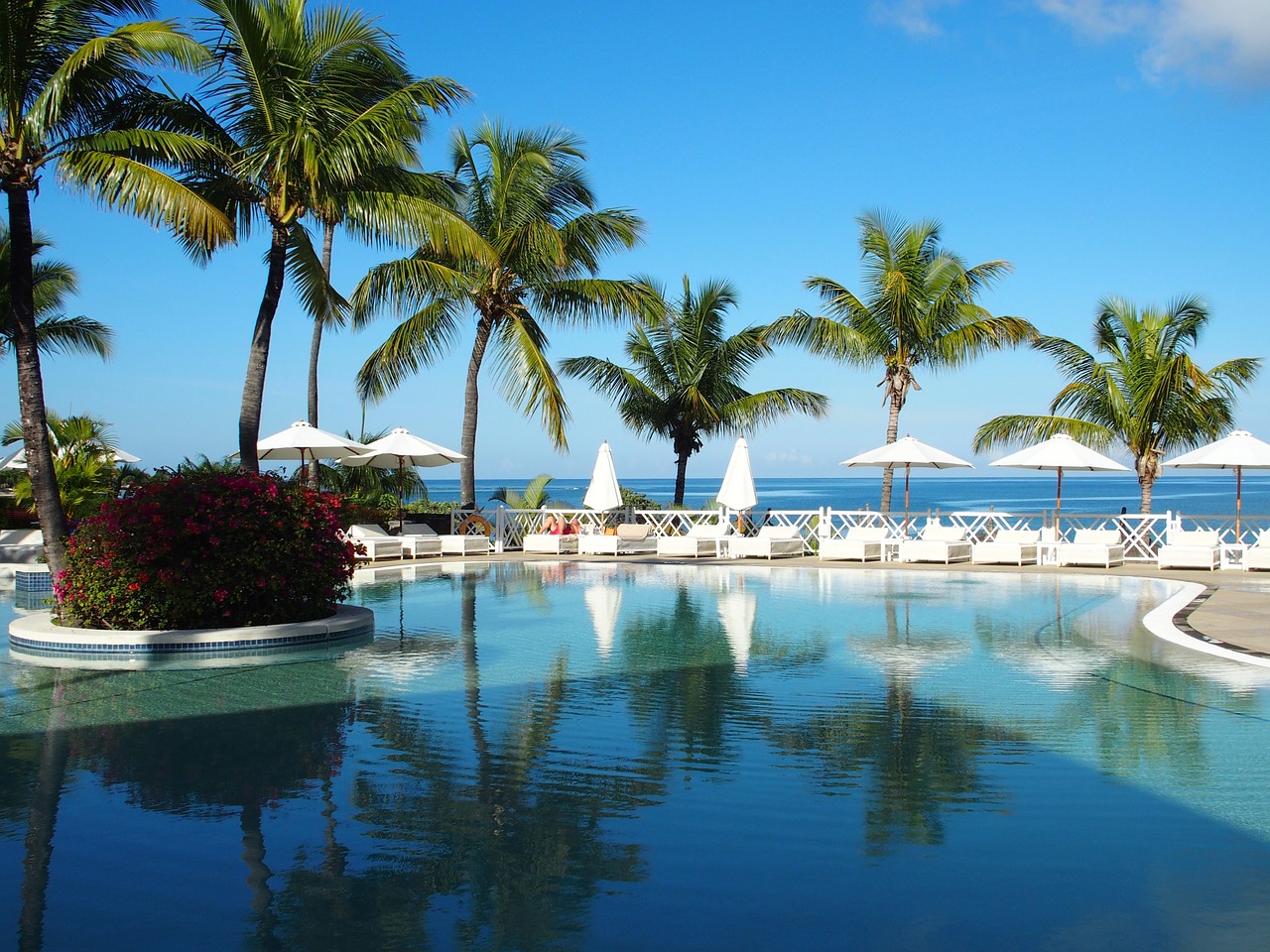2025 presents an optimal window to move to Mauritius. Experience political stability, a booming economy, and a tax-friendly haven for investors and remote workers. This page details what it is like to live in Mauritius. However, keep in mind that, paradise does not come without adjustments; moving to Mauritius is not just about sunbathing. This moving to Mauritius guide explores the logistics, from securing permits and finding the perfect accommodation to integrating into the local community. Residency in Mauritius is a website in Russian. This page has everything Russian foreigners need to know about life in Mauritius.
Permits or Visas for Moving to Mauritius
When moving to Mauritius, you can choose from an occupation permit, residence permit, permanent residence permit, digital nomad visa or retirement visa. Below are the requirements for the permits and visas for moving to Mauritius:
- A combined work and residence permit for foreign nationals.
- Allows living and working in Mauritius for a maximum of 10 years, renewable under specific conditions.
- Categories include professional permit, investor permit, and self-employed permit.
- The Retired Permit is a Residence Permit for foreigners looking to move to Mauritius for retirement.
- Dependents of Occupation Permit or Residence Permit holders are eligible.
- Live and work in Mauritius for 20 years on a Permanent Residence Permit
- Quick acquisition by investing USD 375,000 in a qualifying business activity.
- Other routes include obtaining it through an Occupation Permit or a Residence Permit as a retired non-citizen, requiring a minimum of three years as a permit holder and meeting specific conditions.
- A remote work visa, also known as the Mauritius Digital Nomad Visa
- Allows individuals to stay in the country for up to a year.
- Suitable for remote work, relaxation, or retirement.
Foreigners who are looking to move to Mauritius for retirement can choose one of the following:
- Retirement Permit of 10 years
- Retirement visa of up to a year, renewable
- Buy a property valued at more than USD 200,000 in a PDS project
Accommodation
Expats often face the choice between the lively North and the scenic West when considering accommodation in Mauritius. The North, known for its vibrant atmosphere, offers a plethora of schools, facilities, restaurants, and spacious living. In contrast, the West is beautifully organised, featuring stunning mountainous scenery, but is hindered by poor commuting links and scorching summer temperatures.
For accommodation seekers, prices vary based on factors like location, size, bedrooms, and amenities. Basic houses in the North with 2 to 3 bedrooms may range from USD 500 to USD 1000 per month. Luxurious options with 3 to 6 bedrooms, encompassing 200-400 m² and featuring gardens and pools, can cost between USD 2000 and USD 5000 monthly. Some offers may include separate deposits and agency fees.
Real Estate
Approved property schemes in Mauritius include the PDS, Smart Cities and the G+2 developments. These include penthouses, apartments, beachfront properties and villas. Buying a property of at least USD 375,000 in one of these schemes grants foreigners Mauritius permanent residence. Buying properties outside the schemes requires having a permit and investing at least USD 500,000. For a better understanding of Mauritius real estate, connect with one of our experts at Relocate Mauritius.
Healthcare
Healthcare in Mauritius has witnessed significant improvement in recent years. The island is equipped with an array of medical facilities, including 5 public hospitals and over 30 private clinics. Notably, Mauritius places a strong emphasis on providing premium and high-quality healthcare services. While there is a network of public hospitals, it is advised for foreigners to opt for private facilities for better service quality and accessibility. Private healthcare options not only offer a more personalised experience but also often cater to the specific needs of expatriates. Additionally, individuals can easily avail themselves of private health insurance facilities, ensuring coverage for medical services.
Get in touch with us for health insurance options.
Cost of Living
Planning your move to Mauritius requires a realistic budget blueprint. Factor in daily expenses like groceries, utilities, and transportation. Expect housing costs to vary, ranging from modest apartments for around $500 to luxurious villas exceeding $5,000 depending on location and amenities. Education options also impact finances. While government schools provide free education, international alternatives have associated fees. Luckily, everyday essentials like food, public transport, utilities, and healthcare are reasonably priced in Mauritius. Consider exploring local markets for fresh produce and bulk purchases for cost-effective grocery options. A family of four can comfortably maintain a moderate lifestyle on a monthly budget between MUR 100,000 and 200,000. Remember, these are general estimates – your specific needs and lifestyle choices will define your actual expenses.
Education
If you are moving to Mauritius with your children, research the top international schools. Mauritius has a variety of English-speaking and French-speaking international schools, providing a global curriculum in a multicultural setting. This article elaborates on the top international schools in Mauritius. Mauritius also boasts a number of private and public universities, which have been listed here. Make sure to contact the schools and universities early to understand the admission requirements and deadlines. Starting the process early will allow you to visit the schools and universities and get a feel for the learning environment.
For in-depth insights, get in touch with us for personalised advice on finding the most suitable school for your needs.
Work and Business Opportunities
If you are moving to Mauritius and are seeking professional opportunities, explore key sectors like ICT and financial services. Network with local professionals and use platforms like LinkedIn to connect. Check out the Jobs In Mauritius website to learn more about working in Mauritius as a foreigner.
Setting up a business in Mauritius has become an appealing option for global companies, given its stable economy and business-friendly regulations. Entrepreneurs and investors can choose from different company types and licences. To understand more about setting up a business as a foreigner, talk to one of our experts.
Transportation
Research the public transport system and consider car rental services for initial exploring. Websites such as Kayak, and ABC Car Rental offer various options of vehicles to suit your budget and style. Familiarise yourself with local driving regulations and remember, Mauritius drives on the left! If you’re not accustomed, practice on quieter roads before hitting the main highways like the M2. Obtaining a Mauritian driver’s license is straightforward, especially with a valid license from your home country.
Networking and Social Integration
Build your network by joining expat groups on social media and attending local meetups. Embrace the vibrant Mauritian culture by attending events like the Porlwi by Light festival. Learn basic Creole phrases and engage with the local community through online forums and Facebook Groups. We, at Relocate Mauritius have helped countless foreigners from South Africa, UK, USA, Germany and other countries, move to Mauritius. Get in touch with us to connect with other expats and learn about their relocation experience.
The following links are useful resources to learn more about Mauritius:
Frequently Asked Questions
1. Is Mauritius a good place to move to?
With the World Happiness Report 2022 recognising Mauritius as the top African nation fostering happiness and well-being, Mauritius is a great place to move to. Also, with several international schools, your kids can easily blend in. Ranked 1st in Africa and 13th worldwide for ‘Ease of Doing Business’, it is also a preferred destination for entrepreneurs and investors. With no capital gains tax and a 15% corporate tax rate, Mauritius is a very tax-efficient offshore jurisdiction. With its retirement facilities, Mauritius is also a great place for foreigners to retire in. The scenic beauty, diverse culture, work-life balance and safety ensures a comfortable life here.
2. How much money do I need to move to Mauritius?
The cost to move to Mauritius varies: a family of four can live a moderate lifestyle with a monthly budget of MUR 100,000 to 200,000.
3. Is it worth migrating to Mauritius?
Migrating to Mauritius is worthwhile for various reasons. From a business standpoint, it prioritises good governance, boasting a reputable legal system, bilateral treaties, and tax-efficient policies, making it attractive for investors. Beyond business, Mauritius offers a vibrant lifestyle with scenic beauty, diverse culture, and a favourable environment for a comfortable and enriching life.
4. Can a UK citizen live in Mauritius?
A UK citizen can live in Mauritius by:
- Retiring: A UK citizen can retire in Mauritius provided that they are at least 50 years and earn USD 1,500 monthly or have USD 18,000 in a local bank account.
- Buying a property of at least USD 375,000 in an approved scheme, allowing them to live permanently here
- Working: A UK citizen can work and live in Mauritius on an Occupation Permit.
- Working Remotely: A UK citizen can live in Mauritius up to a year on the Mauritius Digital Nomad Visa
- Investing at least USD 375,000 in a Mauritian business for a 20-year residence permit
At Relocate Mauritius, our expertise lies in assisting foreigners in moving to Mauritius. As a team of immigration consultants and relocation advisors, we specialise in guiding individuals through the complexities of the relocation process. Additionally, our services include assistance in finding suitable accommodation, pet relocation, and settling in. Get in touch.



